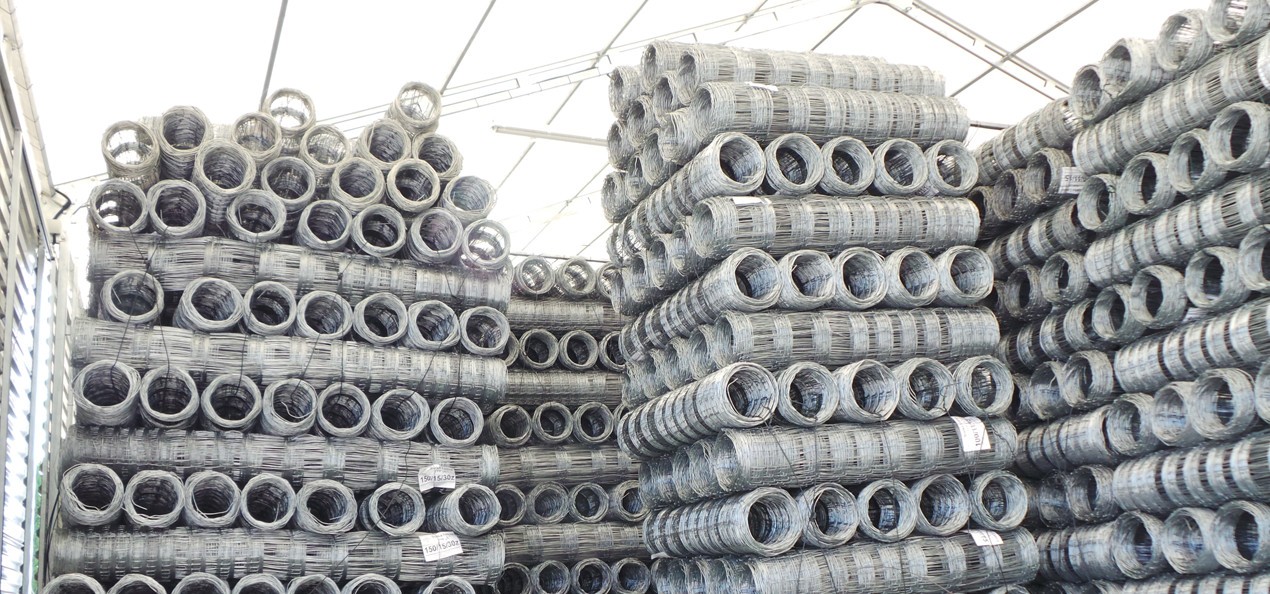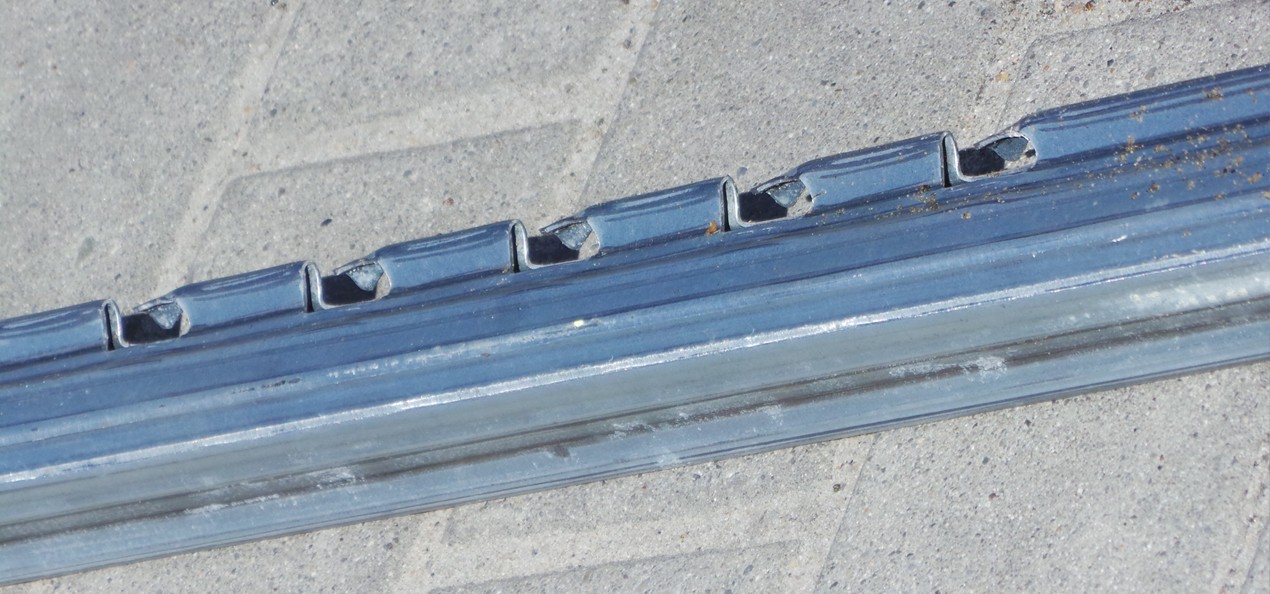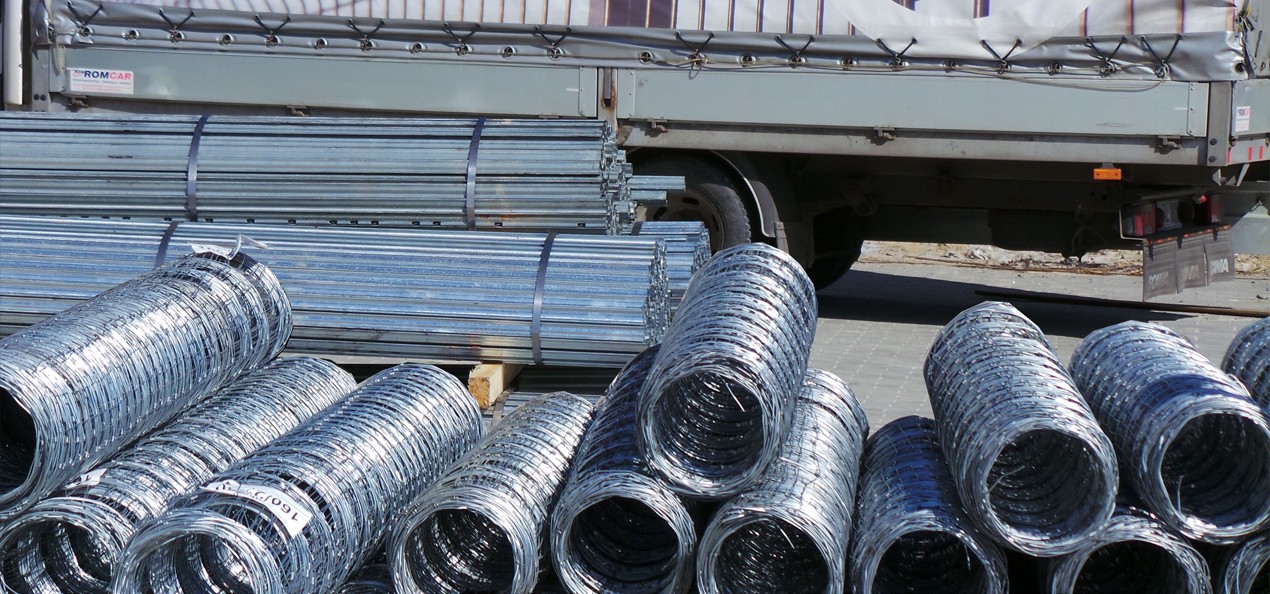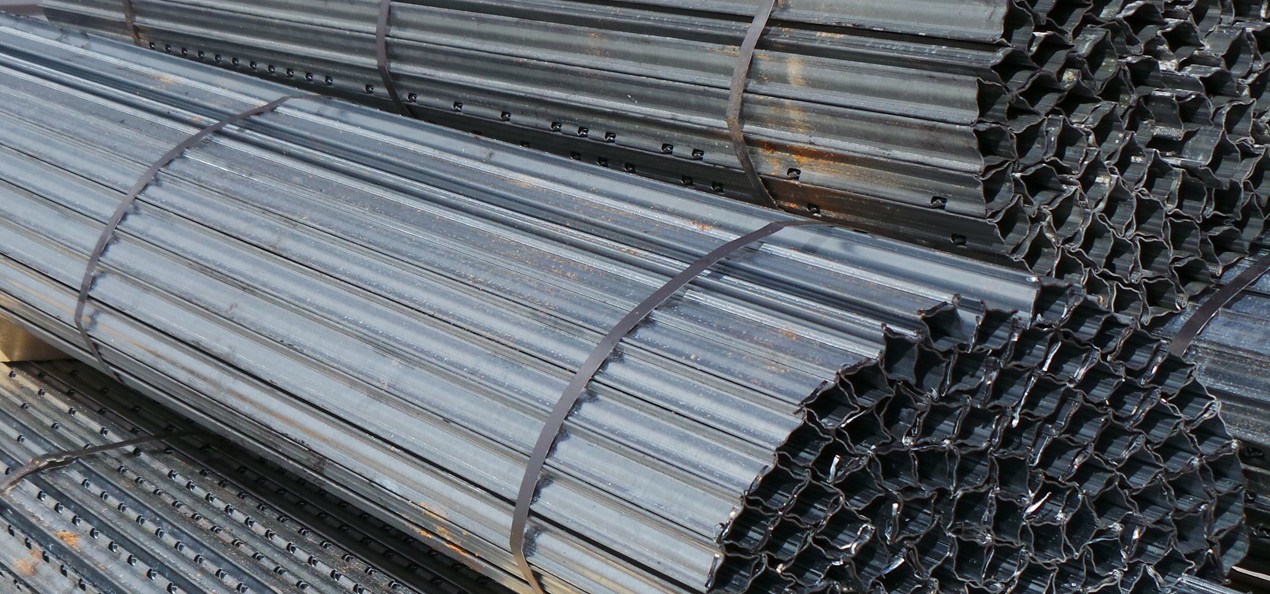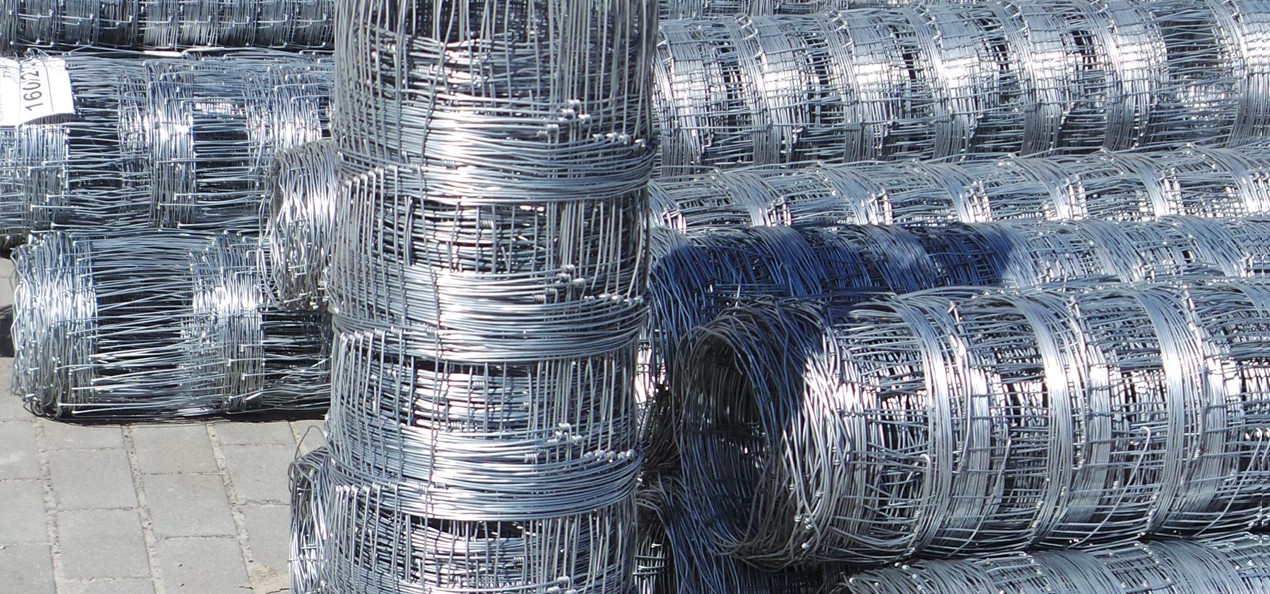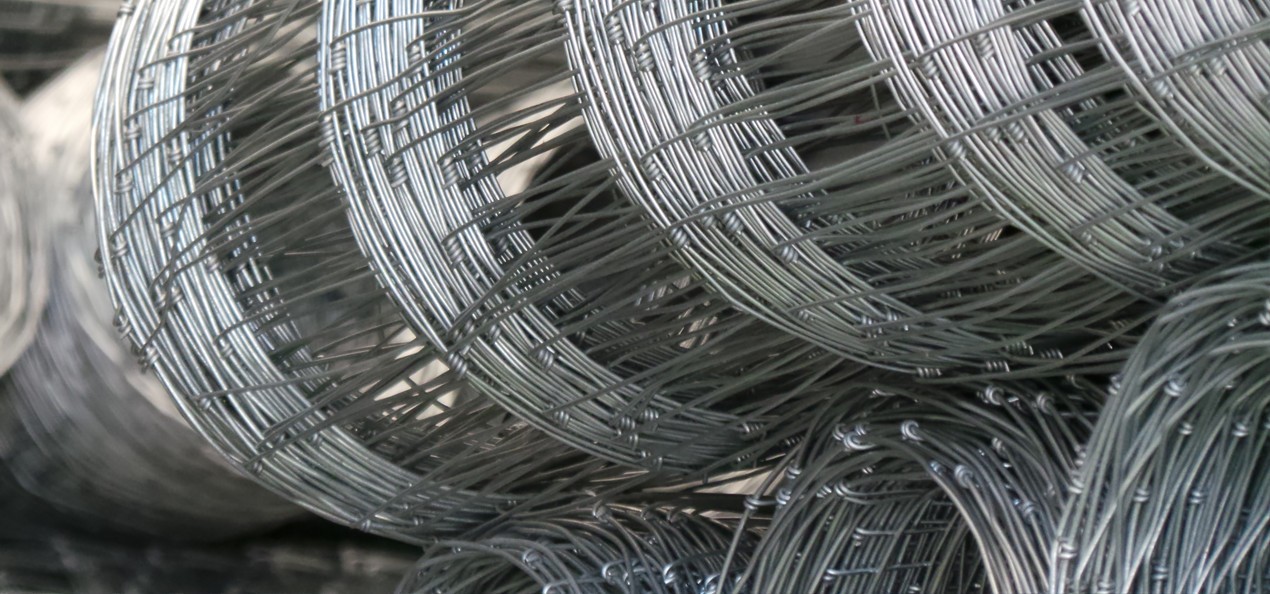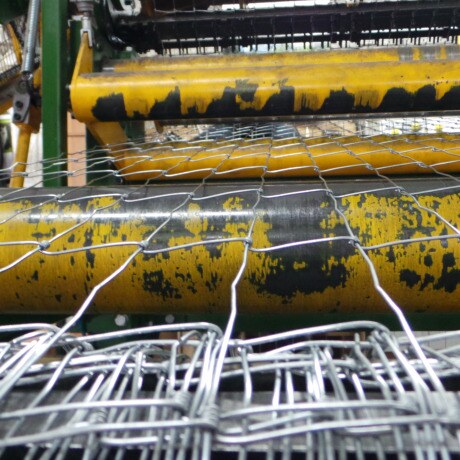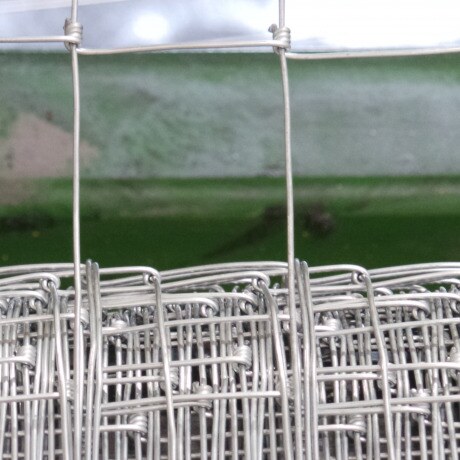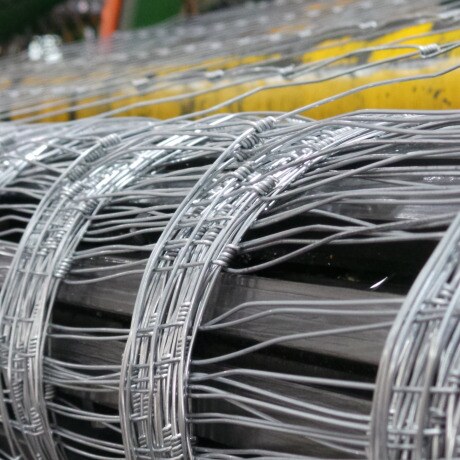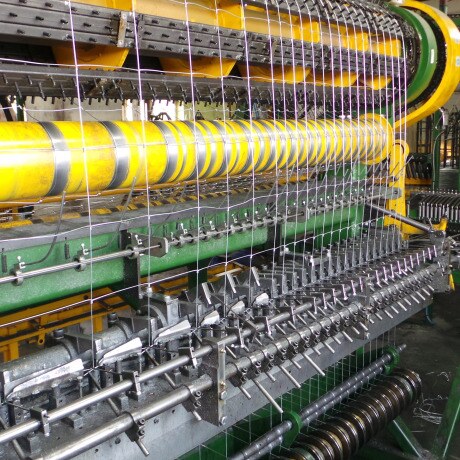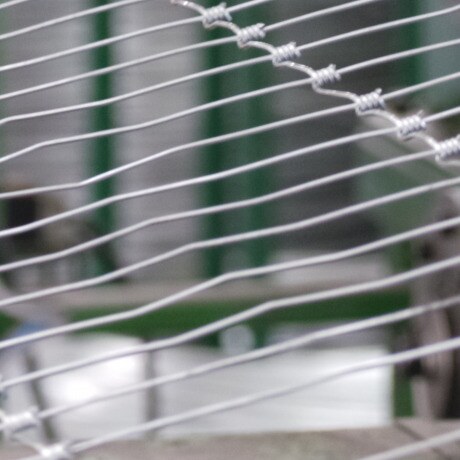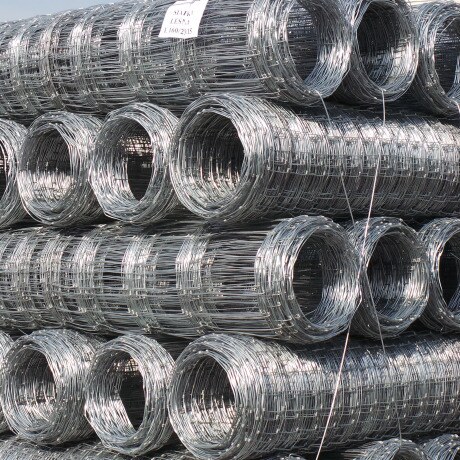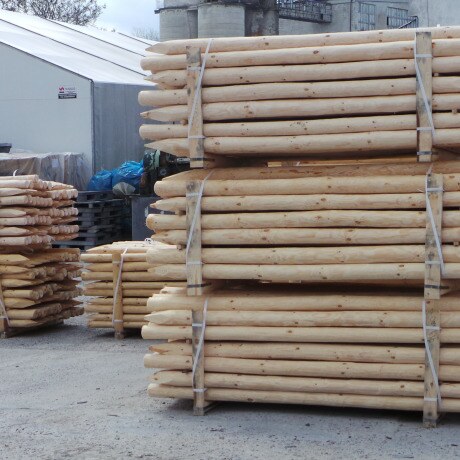Type L forestry wire mesh
Type L (LIGHT) forestry wire mesh is the standard version of the forestry wire mesh. It is produced from massive, galvanized wires with a diameter of 2.5 mm (edge wires) and 1.6 mm (others). It is used to protect forest areas, agricultural crops, livestock paddocks, expressways and highways. Light and aesthetic, the wire mesh does not interfere with the natural landscape.
Application
Low price and easy installation make Type L forestry wire mesh one of the most popular fences on the market. It is used for fencing:
- forests, especially young stands,
- agricultural crops, pastures, livestock paddocks,
- orchards, gardens, recreational plots,
- expressways, highways and railway lines,
- construction sites, seasonal facilities, etc.
Type L forestry wire mesh prevents the entry of mainly weaker animals: roe deer, fox, hare. If larger animals, e.g. wild boars, are more of a threat in the area, we recommend our type M forestry wire mesh.
Technical specifications
The dimensions of the forestry wire mesh are described by three figures:
- the first one informs about the height of the mesh in centimetres,
- the second provides the number of horizontal (longitudinal) wires in pieces,
- the third is the distance between the individual vertical wires in centimetres.
For example: 160/23/15 forestry wire mesh is a 160 cm high mesh with 23 horizontal wires, and vertical wires with 15 cm spaces between them. We are a manufacturer of forestry wire mesh in many variants. Everyone will find what they look for in our broad product range. The meshes are available in 50-metre long rolls.
| Wire mesh type | Horizontal wire spacing [cm] |
Wire mesh height [cm] |
No. of horizontal wires | Vertical wire spacing [cm] |
Wire mesh reel length [m] |
|---|---|---|---|---|---|
| 200/25/30 |
3 × 20 2 × 15 3 × 10, 16 × 5 |
200 | 25 | 30 | 50 |
| 200/25/15 |
3 × 20 2 × 15 3 × 10, 16 × 5 |
200 | 25 | 15 | 50 |
| 200/17/30 |
3 × 20 2 × 15 11 × 10 |
200 | 17 | 30 | 50 |
| 200/17/15 |
3 × 20 2 × 15 11 × 10 |
200 | 17 | 15 | 50 |
| 180/20/30 |
3 × 20 2 × 15 3 × 10, 10 × 5 |
180 | 20 | 30 | 50 |
| 180/20/15 |
3 × 20 2 × 15 3 × 10, 10 × 5 |
180 | 20 | 15 | 50 |
| 180/15/30 |
2 × 20 4 × 15 8 × 10 |
180 | 15 | 30 | 50 |
| 180/15/15 |
2 × 20 4 × 15 8 × 10 |
180 | 15 | 15 | 50 |
| 160/23/15 |
1 × 20 2 × 15 3 × 10, 16 × 5 |
160 | 23 | 15 | 50 |
| 160/23/30 |
1 × 20 2 × 15 3 × 10, 16 × 5 |
160 | 23 | 30 | 50 |
| 160/15/15 |
1 × 20 2 × 15 11 × 10 |
160 | 15 | 15 | 50 |
| 160/15/30 |
1 × 20 2 × 15 11 × 10 |
160 | 15 | 30 | 50 |
| 150/17/15 |
3 × 20 2 × 15 1 × 10, 10 × 5 |
150 | 17 | 15 | 50 |
| 150/17/30 |
3 × 20 2 × 15 1 × 10, 10 × 5 |
150 | 17 | 15 | 50 |
| 150/15/30z |
3 × 20 2 × 15 3 × 10, 6 × 5 |
150 | 15 | 30 | 50 |
| 150/15/15z |
3 × 20 2 × 15 3 × 10, 6 × 5 |
150 | 15 | 15 | 50 |
| 150/13/30 |
2 × 20 2 × 15 8 × 10 |
150 | 13 | 30 | 50 |
| 150/13/15 |
2 × 20 2 × 15 8 × 10 |
150 | 13 | 15 | 50 |
| 125/15/30 |
2 × 20 2 × 15 1 × 10, 9 × 5 |
125 | 15 | 30 | 50 |
| 125/15/15 |
2 × 20 2 × 15 1 × 10, 9 × 5 |
125 | 15 | 15 | 50 |
| 125/13/30z |
2 × 20 2 × 15 3 × 10, 5 × 5 |
125 | 13 | 30 | 50 |
| 125/13/15z |
2 × 20 2 × 15 3 × 10, 5 × 5 |
125 | 13 | 15 | 50 |
| 125/13/30 |
1 × 15 11 × 10 |
125 | 13 | 30 | 50 |
| 100/10/30 |
2 × 15 7 × 10 |
100 | 10 | 30 | 50 |
| 100/10/15 |
2 × 15 7 × 10 |
100 | 10 | 15 | 50 |
Type L forestry wire mesh patterns
Do you need forestry fencing mesh against hares, foxes or rabbits? Check our convenient patterns. They will make it easy for you to choose the mesh to suit your needs. If the area is threatened by small animals, the mesh height may be lower, but it must have dense meshes at the bottom part. We offer e.g. a model with dimensions 125/15/15. If we expect encounter with roe deer, higher nets, 160/15/15 or 180/15/30, will work better.
Installation method
Simple and quick installation of the forestry wire mesh is one of its key assets. The work requires no technical knowledge or heavy machinery. However, it must be done carefully and precisely. The first thing to do is to ensure that the mesh is properly stretched. This way, the forest fencing will fulfil its protective functions for a long time.
The forestry mesh is fastened to steel posts with mounting brackets or to wooden posts with the use of staples, i.e. U-shaped nails. The mesh is lightweight, so the maximum post spacing is 2 to 5 metres. A gallery that showcases the installation of the mesh on particular types of posts is available in the Forestry and Highway Fencing tab.






